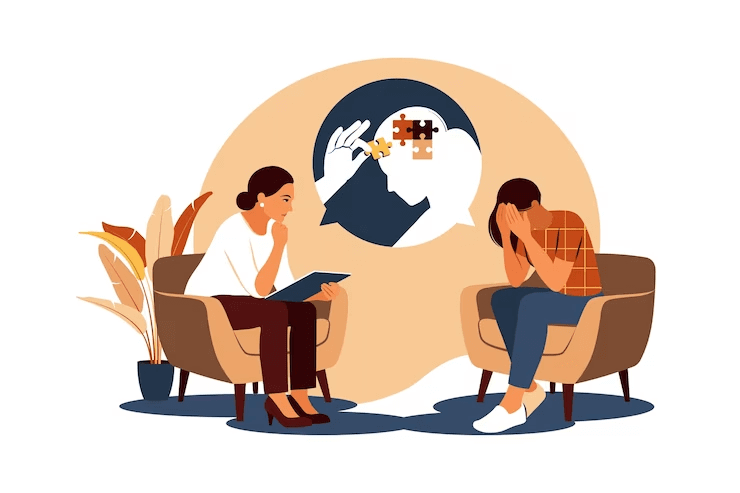Introduction
Depression is a multifaceted mental health condition that affects millions of people worldwide. In this comprehensive guide, we will delve deep into the complexities of depression, exploring its various facets, causes, symptoms, treatments, and more. By the end of this article, you will have a better understanding of depression and how to navigate its challenges.
What Is Depression?
Depression is not simply feeling sad; it’s a serious medical illness that impacts a person’s thoughts, feelings, and behavior. It affects one’s ability to function in daily life and can lead to a range of physical and emotional problems.
Types of Depression
Depression comes in different forms, each with its own unique characteristics. Some common types include:
1. Major Depressive Disorder (MDD)r
MDD, often referred to as clinical depression, is characterized by persistent feelings of sadness, hopelessness, and a loss of interest in activities once enjoyed.
2. Persistent Depressive Disorder (PDD)r
PDD, also known as dysthymia, involves long-term but milder symptoms of depression lasting for at least two years.
3. Bipolar Disorder
Bipolar disorder involves alternating periods of depression and mania, a state of elevated mood and energy.
4. Seasonal Affective Disorder (SAD)r
SAD is a type of depression that occurs at the same time each year, usually during the fall and winter months when daylight hours are shorter.
Causes of Depression
Depression does not have a single cause; it’s often the result of a combination of factors. Some key contributors include:
1. Biological Factorsr
Genetics, brain chemistry, and hormonal imbalances play a role in depression.
2. Environmental Factorsr
Stressful life events, trauma, and chronic illness can trigger or exacerbate depression.
3. Psychological Factorsr
Negative thought patterns and low self-esteem can contribute to depressive symptoms.
Recognizing the Symptoms
Depression manifests in various ways, and it’s essential to recognize the symptoms. Common signs include:
– Persistent sadness or emptiness
– Loss of interest in activities
– Changes in appetite and weight
– Sleep disturbances
– Fatigue and low energy
– Feelings of guilt or worthlessness
– Difficulty concentrating
– Thoughts of death or suicide
Seeking Help
If you or someone you know is experiencing depression, it’s crucial to seek help. Professional support can make a significant difference in managing and overcoming depression. Treatment options include therapy, medication, lifestyle changes, and support groups.
The Stigma Surrounding Depression
One of the challenges of dealing with depression is the stigma attached to it. Many people hesitate to seek help due to fear of judgment or misunderstanding. It’s essential to break down these barriers and promote open conversations about mental health.
Coping Strategies
Living with depression can be challenging, but there are coping strategies that can help individuals manage their condition. These may include:
– Building a support network
– Practicing self-care
– Setting realistic goals
– Engaging in physical activity
– Learning stress management techniques
Conclusion
Depression is a complex condition with a myriad of factors influencing its development and progression. By understanding its intricacies, we can better support those affected by it and work towards reducing the stigma surrounding mental health issues.
1. Is depression curable?
Depression is treatable, and many people experience significant improvements with the right treatment and support. However, it may not be entirely curable for everyone.
2. Can I overcome depression without medication?
While medication can be beneficial, some individuals with depression find relief through therapy, lifestyle changes, and self-help techniques.
3. How can I help a loved one with depression?
Listening, offering support, and encouraging them to seek professional help are crucial ways to assist a loved one with depression.
4. Are there natural remedies for depression?
Certain lifestyle changes, such as exercise and a balanced diet, can complement traditional treatments for depression.
5. Is depression a sign of weakness?
No, depression is not a sign of weakness. It’s a medical condition that can affect anyone, regardless of their strength or resilience.
 info@newlife.com
info@newlife.com 390 Racetrack Rd. McDonough, GA 30252
390 Racetrack Rd. McDonough, GA 30252
 404-275-2322
404-275-2322
